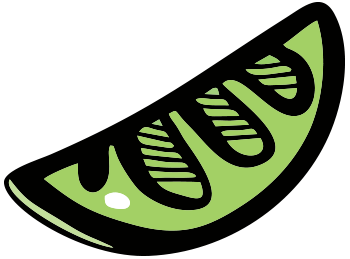Townsville seminar for struggling kids
2 October 2013
Any parent or teacher will tell you that every child is different.
While some kids seem to breeze through school, research shows that around 10 per cent of Australian students have a Specific Learning Disability, more commonly known as Dyslexia.
But how do you spot it and how do you help?
Education expert Peter Freney and President of the Australasian Association of Irlen Consultants (AAIC), is holding a public forum in Townsville to talk about different ways of helping children with learning difficulties.
Mr Freney, who has a Masters in Education from James Cook University and a second Masters in Education from the University of Canberra, has devoted his life to teaching and learning, starting off first as a primary school teacher before becoming a school principal and then a school inspector.
Mr Freney said it was during that time he developed a special interest in bright children who struggle to read.
“I always wondered why seemingly talented children had great difficulty learning to read,” said Mr Freney.
“These children are often classified as lazy or of low intelligence, but it’s very rarely the case. Many poor readers have a visual processing difficulty, which, when rectified, makes a huge difference to their reading ability and self esteem. This visual processing difficulty is also known as Visual Dyslexia; there are other forms of dyslexia as well.”
Mr Freney has spent the last 20 years researching and developing techniques helping children with Scotopic Sensitivity/Irlen Syndrome (SS/IS) and heads up the Irlen Diagnostic Clinic on the Sunshine Coast.
The Clinic, which also has branches in Cairns, Townsville, Rockhampton, Gladstone, Bundaberg, Hervey Bay and Maryborough assesses and helps children who have difficulties reading by using tinted spectral filters.
“Some children have issues perceiving certain frequencies within the white light spectrum,” said Mr Freney.
“When this is the case, the child may have a slow reading rate, an inability to read for a length of time, difficulty judging distances and may also suffer eye strain and headaches.”
“Once we assess if the child has Irlen Syndrome, we are able to determine which specific tint will work for them.”
“Our Research indicates that more than half of the people, both children and adults, who find reading difficult, can be helped considerably with Irlen Filter Lenses.”
Mr Freney is holding a free seminar at the Cootharinga Rooms, 40 Keane Street, Currajong at 7.30pm on Thursday 17th October and a professional development course on Wednesday 16th October from 9am-3pm at the Cootharinga Rooms, 40 Keane Street, Currajong (cost of $250 per person).
For more information about Irlen Syndrome visit http://www.aaic.org.au/ or contact Peter Freney on 5445 2458 or pjfreney@westnet.com.au or http://www.irlenclinic.com.au/
Media contact: Kristy Lankester, Fresh PR and Marketing, 0400 534 526 or kristy@freshprm.com.au
Ends.
About Irlen Syndrome and the Irlen Method
Irlen Syndrome, also known as Scotopic Sensitivity Syndrome, was first identified by educational psychologist Helen Irlen while she was working with adult learners as Director of the Learning Disability program at California State University Long Beach in the early 1980s. Until described in her book, Reading by the Colours, there was no explanation or treatment for perceptual reading difficulties. Many people were misdiagnosed as dyslexic, slow learners or having ADHD.
The non-medicated, research-based Irlen Method is a groundbreaking, non-invasive technology that uses coloured overlays and spectrally modified filters worn as glasses to enable the brain to process visual information accurately. This technology can improve reading fluency, comfort, comprehension, attention and concentration, while reducing light sensitivity. Of note, Irlen Syndrome is not dyslexia, even though its symptoms overlap and it is often misdiagnosed as dyslexia.
Ms. Irlen’s work was introduced into Australia 25 years ago by Dr. Paul Whiting, a specialist in learning disabilities at the University of Sydney at that time. Today, the Irlen Method is used in over 44 countries and there are over 174 Irlen Clinics worldwide.
Website: http://irlen.com/index.php
About Helen Irlen, MA, LMFT
Founder & Executive Director: Irlen Institute International Headquarters
Helen L. Irlen, MA, LMFT is an internationally recognized educator, researcher, therapist, scholar, and expert in the area of visual-perceptual problems. She is the founder and executive director of Irlen, home of the internationally acclaimed Irlen Method.
Ms. Irlen has been in the field of education for the past 30 years. A graduate of Cornell University, her background includes 15 years as a School Psychologist, 30 years as a Child and Family Therapist, Educational Therapist, founder and Director of the Adult Learning Disabilities Program and Assistant Professor of Adult Learning Disabilities at California State University/Long Beach, instructor in psychology at Cornell University, and research assistant at Cornell.
She has been recognized for her dedication to working with children and adults, and is listed in Who’s Who in California, Who’s Who in Asia and the Pacific Nations, International Woman of the Year (1999-2000), International Who’s Who of Professionals, Kingston’s National Registry of Who’s Who, and the Dictionary of International Biography.
Peter Freney B. ED.(UQ), M. Ed. (James Cook), M.Ed. (Canberra University), FQIEA
Peter has been involved all of his adult life with teaching and learning. As a School Principal in all sizes of schools, small to large, and later as a School Inspector, he has consistently tried to find better answers to how students learn, and why some find it so hard. A special interest has been the education of gifted and talented children. This interest led him to wonder why some seemingly talented and intelligent children had great difficulty learning to read. The last twenty years have been focused on one piece of that puzzle: Scotopic Sensitivity/Irlen Syndrome (SS/IS). He has followed, with interest, the scientific research, both medical and educational, which has developed over that time. He operates a private clinic, based on the Sunshine Coast but extending throughout Queensland, dispensing tinted spectral filters and advice about SS/IS, Dyslexia, and Learning Difficulties.
[nggallery id=77]


